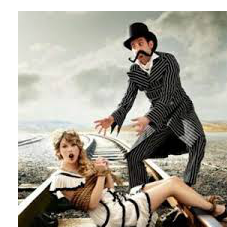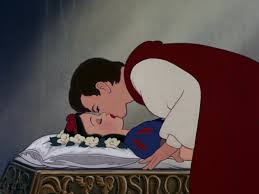
Have you ever had a friend say to you, “Dude, you have to read this book!” and then they proceed to tell you what it’s about? You wrinkle your nose and say, “Nah, I don’t like those types of stories.” The type of story is called a trope.
A trope is a bit like a plot, if you will, a contrived setup that drives your story’s action. Movies, TV shows and books all use them. Readers and audiences, whether they know it or not, look for certain tropes. A few popular tropes right now in romance novels are secret babies, military heroes, women in peril, millionaire playboys, just to name a very few. And different people like different ones.
Take me. I’m not a big fan of books that involve past lovers reunited. I look at the fact that there was a reason these people broke up in the first place and that reason hasn’t changed over time. I guess I’m not much of a romantic, because if you browse online or in bookstores, they are chock full of these storylines, or tropes.
My favorite tropes are the arranged marriage, enemies to lovers, the love triangle, and military heroes, just for starters. There are more than enough for everyone. Perhaps you might send me a few of your favorites.
It’s hard to believe that one short year ago I had no idea what a trope was. But then Prisoner of Love got picked up for publishing (due out Aug.18, 2015. Shameless plug!). My then editor (I’ve had two) asked me what the trope for my story was. Huh? I ran and googled “trope,” read the selections, and took a wild guess. Luckily one of my choices was correct: enemies to lovers.
Since then I’ve been studying the trope-driven romance novel. You would think that, with all the romances written out there, readers would get tired of the marriage of convenience, or the mistaken identity trope, just for example. Yet readers can’t seem to get enough, judging by the amounts of those books being written and subsequently bought. Which brings me to my next topic: making something old seem new.
How do authors take a used and reused trope and make it fresh for their own plots? One way they do it is by using different types of settings and characters. Most of us have read a marriage of convenience romance set in Regency England, for example. An author could change it up a lot by setting it in the American West, between a Native American and a “white man,” perhaps (Not my phrase).
An author can also make a trope fresh with snappy dialogue, or humor. I like humor in the romances I read, and write. I want to laugh out loud at something a character thinks or says, and I consider it a compliment when a reader writes and tells me she laughed so loud on the train to work that other passengers stared at her. So the manner in which an author delivers her trope-driven romance is another example of how she can change-up a widely used trope.
Lastly, an author should listen to readers and reviewers. She should read what others are saying about books written around tropes similar to the one she plans to write. These people are the experts, after all. If they say a book is just another “woman in jeopardy” novel, find out what made the readers think that way. Were her characters unlikeable? Too one-dimensional? Were the setting, dialogue, and action too run-of-the-mill, i.e., like every other crime drama novel? Nothing made it stand apart from the others? Prior research might save the author from making such a costly mistake.
She should take the time to see which types of tropes are selling. Do we need another widow that inherits a big house and turns it into a bed-and-breakfast inn book? If an author can’t make it stand out with fresh dialogue, or never-before-seen characters, maybe she should attempt a different trope. I hate to say it in the creative arena, but marketing is still a major force to consider before writing a romance.
The bottom line is that, though authors write because they get this indescribable urge within them to put words onto paper, to create alternate realities littered with imaginary people, they don’t write just to satisfy themselves. They write to entertain, to share with others. So it becomes their job to, not only satisfy that urge to write, but to make sure that what they write gets seen by others. By choosing a trope and presenting it in a new and unique manner, she can guarantee satisfaction for herself and for readers all around the world.
***Next time: Does the F-bomb belong in romance novels?***

 RSS Feed
RSS Feed
